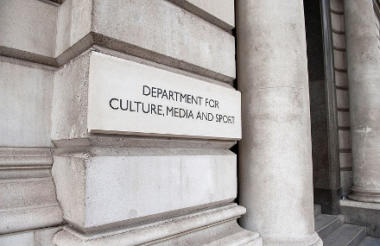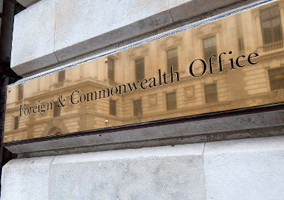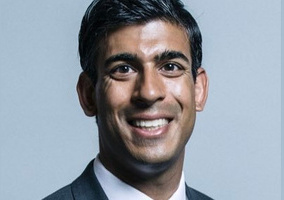The Office for Civil Society (OCS) work will be “rationalised” to “achieve efficiencies”, according to spending review documents.
The OCS is part of the Department for Digital, Culture, Media and Sport (DCMS), and is responsible for delivering the charity, social enterprise, youth, and volunteering agenda.
A document published yesterday outlining the details of the spending review said: “The government will achieve efficiencies in the Office for Civil Society by rationalising work to better deliver the government’s priorities for the sector.”
Civil Society News has sought clarification from both the Treasury and DCMS about what this means in practice.
Charity leaders expressed concern about the statement on Twitter. Kristiana Wrixon, head of policy at ACEVO, described it as “ominous”, and Rhodri Davies, policy director at the Charities Aid Foundation, said it “sounds like bad news”.
The OCS' director, David Knott, is currently on secondment at the National Lottery Community Fund, having been part of the OCS team since 2017.
Hannah Malik and Becky Morrison are the current directors of the OCS. Both joined DCMS from the Treasury earlier this year.
Moved to DCMS in 2016
The Office for Civil Society, originally known as the Office for the Third Sector under the last Labour government, was part of the Cabinet Office until 2016.
It was transferred to DCMS when Theresa May was prime minister. At the time, several sector leaders raised concerns that this could weaken the department’s influence.
In 2018 it launched an ambitious Civil Society Strategy, which set out a vision for working collaboratively across departments on charity policy.
The current minister for civil society is Baroness Barran, who is the first member of the House of Lords to hold the role in an unpaid capacity.
DCMS budget
DCMS' overall budget is £2.4bn for 2021-22, down from the £5bn last year, but up from £2.1bn in 2019-20.
It plans to spend £1.2bn between 2021-22 and 2024-25 to support the rollout of gigabit-capable broadband across the UK.
Spending review documents also show that it plans to spend £150m on cultural and heritage infrastructure, including through the Cultural Investment Fund and Museums Infrastructure Fund, more than £100m on DCMS-supported bodies working across culture, heritage, and sports, and over £320m on galleries and museums.
Review of National Citizen Service
One of the OCS’ main focuses in recent years has been the development of the National Citizen Service.
Spending review documents stated that DCMS will receive nearly £100m from the Treasury “to deliver the National Citizen Service (NCS) and invest in youth facilities”.
This is sharply reduced from 2017, when DCMS spent £191m on NCS, according to analysis. NCS accounted for three-quarters of all spending at that time by the Office for Civil Society.
The youth-volunteering scheme received strong government backing from David Cameron during his time as prime minister. Around half a million people had taken part in NCS projects by 2018, but it was heavily criticised in 2017 for failing to control its costs.
The Treasury document also says: “The government will review its programmes to support youth services including the NCS in the spring”.
The NCS Trust, which was founded in 2013 to build long-term support for the scheme, declined to comment on the potential impact of this review.
Mark Gifford, CEO of NCS Trust, said: “Over the coming weeks, we will be working through the details of our plans with partners, looking to support as many young people as possible through our programmes and the work NCS delivers across the regions.
“We are optimistic about the future for NCS and for the young people of our country as we emerge from the shadow of Covid. We look forward to continuing to deliver our vision of ‘a country of connected, confident, and caring citizens where everyone feels at home.”
Charity Commission budget increase
Meanwhile the documents show that the Charity Commission will receive a £1m budget increase.
For 2021-22 the Commission's resource budget is £28.3m, plus a £2.2m capital budget.
Helen Stephenson, chief executive of the Charity Commission, said: “This increase will allow us to continue our ambitious strategy, ensuring we regulate the sector effectively in the public interest, and provide an efficient and supportive service to charities.
“The settlement recognises our important role in protecting and promoting public trust in charities – a crucial factor in the country’s successful recovery from the Covid pandemic.”
Last year the regulator saw its first budget increase in over a decade when it received a 10% boost to £27.3m. A series of cuts meant the Commission's budget had been roughly halved in real terms from where it was in 2007-08, when it received £32.6m.
Additional reporting by Russell Hargrave
Related articles











